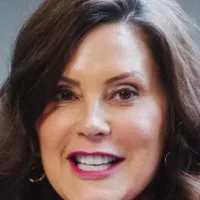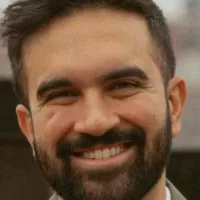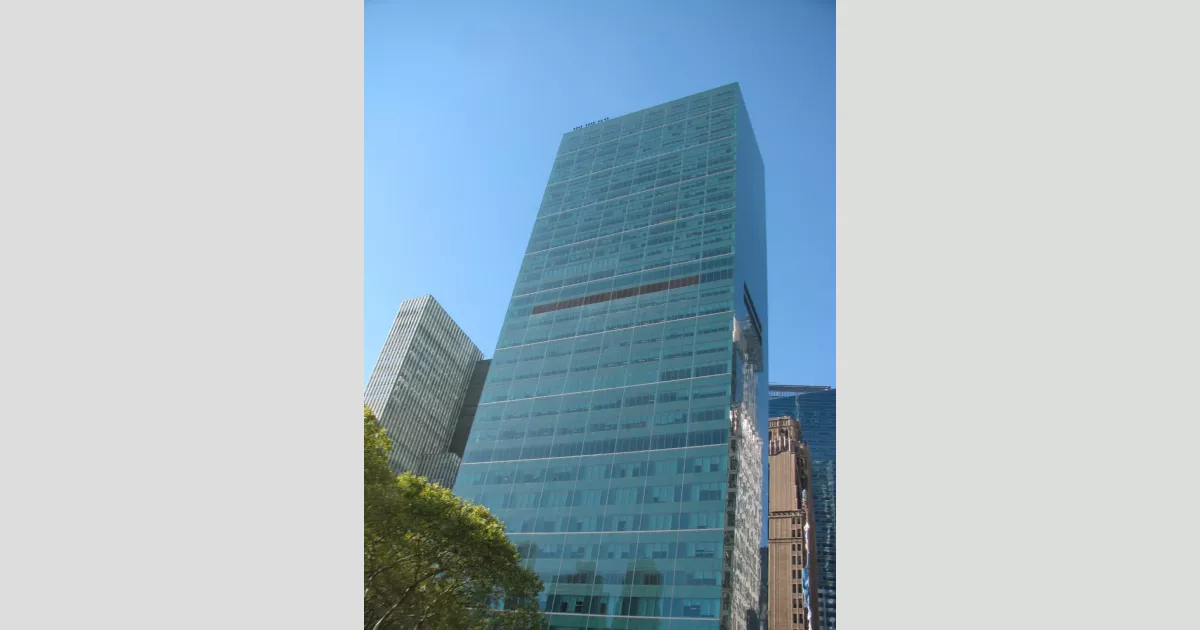Verizon Communications is a leading American telecommunications company headquartered in New York City. As of June 30, 2025, it stands as the world's second-largest telecommunications company based on revenue. It also holds the position of the largest wireless carrier in the United States, boasting a substantial subscriber base of 146.1 million. Its core business revolves around providing wireless and wireline communications services and products.
2000: Customer Turnover Rate in 2000
In 2000, before the launch of the "Can you hear me now?" campaign, Verizon's customer turnover rate was 2.5%.
2001: "Can you hear me now?" Campaign Launch
In 2001, the "Can you hear me now?" campaign for Verizon Wireless began, featuring Paul Marcarelli as "Test Man". Customer turnover dropped to 1.8% from 2.5% in 2000.
2002: Verizon Wireless Customer Growth in 2002
In 2002, Verizon Wireless saw a 10% increase in net customers, reaching 32.5 million, during the "Can you hear me now?" campaign.
2003: Verizon Wireless Customer Growth in 2003
In 2003, Verizon Wireless experienced a 15% increase in net customers, totaling 37.5 million, during the "Can you hear me now?" campaign.
January 2007: Verizon Secures Exclusive Marketing Rights with NHL
In January 2007, Verizon secured exclusive marketing and promotional rights with the National Hockey League (NHL).
November 2009: Lawsuit Dropped in Coverage Map Dispute
In November 2009, AT&T dropped its lawsuit against Verizon over misleading coverage maps in the "There's a map for that" campaign, and Verizon dropped a similar suit against AT&T.
2009: Verizon Sponsored Justin Allgaier in NASCAR
In 2009, Verizon sponsored Justin Allgaier in the NASCAR Nationwide Series.
September 2010: "Can you hear me now?" Campaign Ended
In September 2010, the "Can you hear me now?" campaign, which started in 2001, ended. The campaign featured actor Paul Marcarelli as "Test Man."
2010: Verizon Sponsored Justin Allgaier in NASCAR
In 2010, Verizon sponsored Justin Allgaier in the NASCAR Nationwide Series, before opting out of a NASCAR team sponsorship to pursue an expanded presence with the IndyCar Series.
2010: Verizon Partners with Vodafone to Become Official Wireless Partner of NFL
In late 2010, Verizon Communications joined with Vodafone Group to replace Sprint as the official wireless telecommunications partner of the National Football League (NFL) in a four-year deal estimated at $720 million.
2011: Paul Marcarelli Becomes Spokesperson for Sprint in 2011
In 2011, Paul Marcarelli, known as the "Test Man" from the "Can you hear me now?" campaign, parted ways with Verizon and became a spokesperson for Sprint.
2012: Verizon and NHL Extend Marketing Deal
In 2012, Verizon extended its marketing and promotional rights deal with the National Hockey League (NHL) for another three years. The extended deal included new provisions for the league to provide exclusive content through Verizon's GameCenter app.
June 2013: Verizon Extends NFL Partnership
In June 2013, Verizon announced a four-year extension with the NFL in a deal reportedly valued at $1 billion, giving Verizon the right to stream every NFL regular-season and playoff game.
March 2014: Verizon Becomes Title Sponsor of IndyCar Series
In March 2014, Verizon became the title sponsor of the IndyCar Series through 2018.
2014: Verizon Sues FCC Unsuccessfully
In 2014, Verizon unsuccessfully sued the FCC for powers related to internet content and speed regulations.
September 2016: Naming Rights Change for SNHU Arena
In September 2016, the SNHU Arena in Manchester, New Hampshire, formerly known as the Verizon Wireless Arena, had its naming rights acquired by Southern New Hampshire University.
2018: End of Verizon's Title Sponsorship of IndyCar Series
In 2018, Verizon's title sponsorship of the IndyCar Series concluded, after beginning in March 2014.
2019: Verizon Issues First Green Bond in 2019
In 2019 Verizon began to issue a series of green bonds.
January 2020: Verizon Becomes Founding Partner of USA Team Handball
In January 2020, Verizon became a founding partner of USA Team Handball through the year 2020, with an option to extend the deal until 2024. They are the jersey sponsor for the men's and women's national handball team and the men's and women's national beach handball teams and presenter of the USA Team Handball College Nationals.
2020: Plans for American Professional Team Handball League Announced
In 2020 USA Team Handball CEO Barry Siff announced plans to create an American professional team handball league sponsored by Verizon and projected to launch in 2023.
2020: Verizon Launches "Citizen Verizon" Plan
In 2020, Verizon launched its "Citizen Verizon" plan, outlining social and environmental goals, including digital-skills training for young people and a pledge to be carbon neutral by 2035.
2021: Verizon Sponsored NASCAR Cup Series Race
In 2021, Verizon sponsored the Verizon 200 at the Brickyard, a race in the NASCAR Cup Series season, at Indianapolis Motor Speedway.
2023: Verizon's Fortune 500 Ranking for 2023
In 2023, Verizon is ranked #31 in the Fortune 500 and #68 in the Fortune Global 500.
2023: Verizon Issues Green Bonds in 2023
In 2023, Verizon issued green bonds, using the proceeds to transition to environmentally friendly electrical grids.
2023: Projected Launch Year for American Professional Team Handball League
In 2023, the American professional team handball league sponsored by Verizon was initially projected to launch, but this did not occur.
April 2024: FCC Fines Verizon for Illegally Sharing Customer Location Data
In April 2024, the FCC fined Verizon nearly $47 million for illegally sharing access to customers' real-time location data.
September 2024: Verizon announced as a sponsor for the 2026 FIFA World Cup
In September 2024, Verizon announced they would be a sponsor for the 2026 FIFA World Cup in the United States, Canada, and Mexico. They will provide access to their cellular network for visiting fans at stadiums, fan fests, and metropolitan areas of the host cities.
2024: Verizon Fiscal Year 2024 Earnings
For the fiscal year 2024, Verizon reported earnings of US$17.95 billion, with an annual revenue of US$134.788 billion, an increase of 0.6% over the previous fiscal cycle.
2024: Potential End of Verizon's Partnership with USA Team Handball
In 2024, Verizon had the option to extend their partnership with USA Team Handball.
2024: Verizon Affected by Salt Typhoon APT Attack
In 2024, Verizon was reported to have been affected by an attack from the Salt Typhoon advanced persistent threat linked to the Chinese government.
January 2025: Verizon's Market Capitalization Valued at Over US$163.96 Billion
In January 2025, Verizon's shares traded at over $45 per share, and its market capitalization was valued at over US$163.96 billion.
October 6, 2025: Dan Schulman appointed as new chief executive
On October 6, 2025, Verizon announced the appointment of Dan Schulman as its new chief executive officer.
2026: Verizon to sponsor the 2026 FIFA World Cup
In 2026, Verizon will be a sponsor for the FIFA World Cup in the United States, Canada, and Mexico.
2035: Target year for carbon neutrality pledge
In 2035, Verizon pledged to be completely carbon neutral as part of its "Citizen Verizon" plan launched in 2020.
Mentioned in this timeline

Google LLC is a multinational technology company specializing in online...

Frontier Communications is an American telecommunications company providing broadband internet...
California is a U S state on the Pacific Coast...

The stock market is where buyers and sellers trade stocks...
Arizona is a landlocked state in the Southwestern U S...
Pennsylvania is a U S state located in the Mid-Atlantic...
Trending

22 hours ago Governor Whitmer's final State of the State address focuses on Michigan's future.

7 minutes ago David Bailey shines as top defensive prospect at NFL Combine, impressing scouts.

7 minutes ago Mamdani and Trump Discuss Housing at White House Meeting; Pitches Investments
1 hour ago Rocket Lab's Q4 Beat: Launch Contracts, Solar Arrays, and Acquisition Revealed.
1 hour ago Dell Projects AI Server Boom to Spur $50 Billion in Sales by 2027

2 hours ago Pink and Carey Hart Separate Again After 20 Years: Relationship Update
Popular

Jesse Jackson is an American civil rights activist politician and...

Susan Rice is an American diplomat and public official prominent...

Barack Obama the th U S President - was the...

XXXTentacion born Jahseh Dwayne Ricardo Onfroy was a controversial yet...

Michael Joseph Jackson the King of Pop was a highly...

Kashyap Pramod Patel is an American lawyer who became the...
